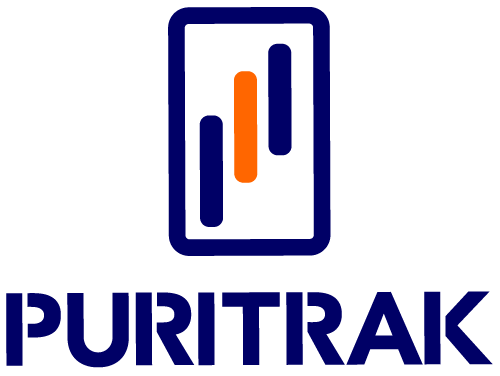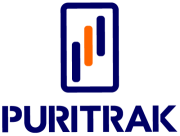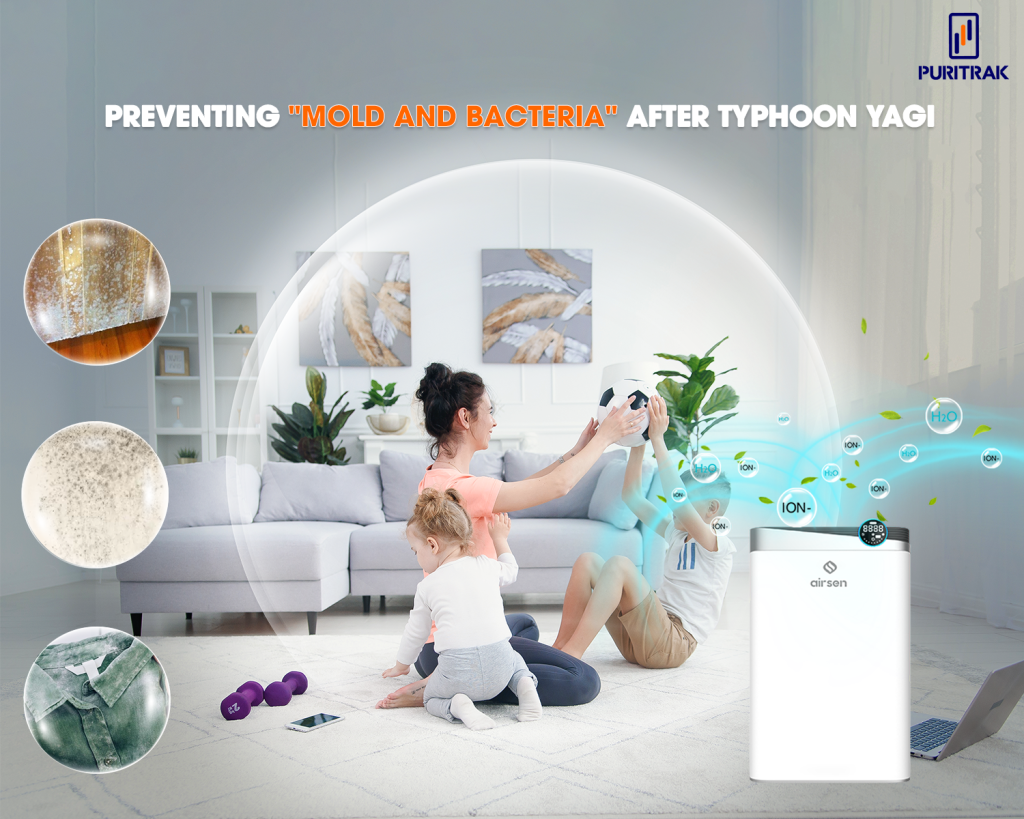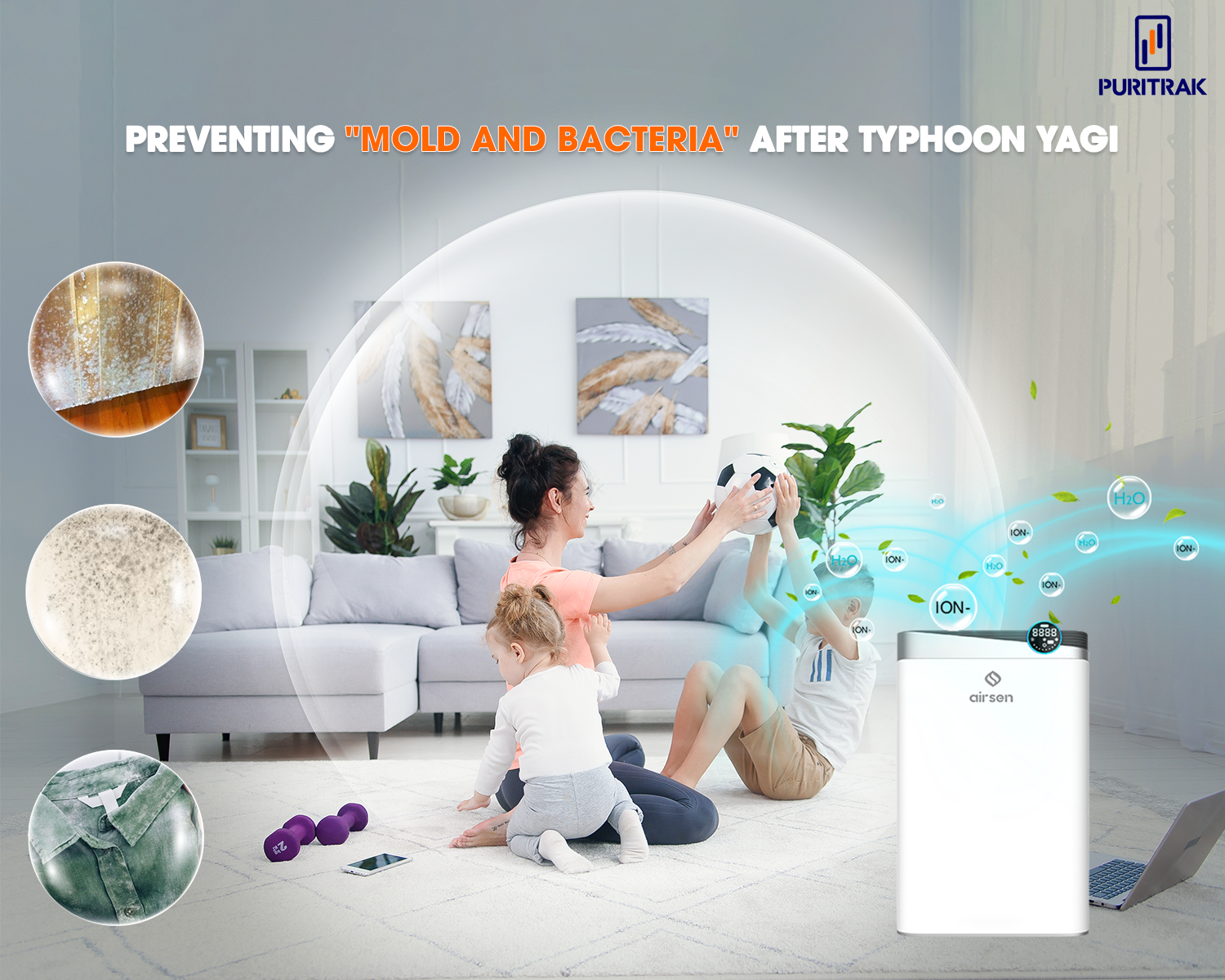
The recent Typhoon Yagi caused a lot of damage to infrastructure and left serious consequences on the living environment. One of the biggest problems after a storm is high humidity, creating ideal conditions for mold and bacteria to grow. Preventing mold and bacteria is necessary to protect your family’s health. In this article, we will share some tips to help you effectively prevent mold and bacteria after a storm, especially with the help of an air purifier.
1. Causes of Mold and Bacteria After a Storm
1.1. High Humidity
High humidity after a storm is one of the main reasons why mold and bacteria thrive. When humidity exceeds safe levels, mold spores can grow rapidly, causing harm to human health.
1.2. Structural Damage to Housing
Storms often cause structural damage to homes such as water leaks, cracked walls, and damaged roofs. These damages create favorable conditions for mold and bacteria to grow.
2. Solutions to Prevent Moisture and Bacteria After a Storm
2.1. Use an Air Purifier
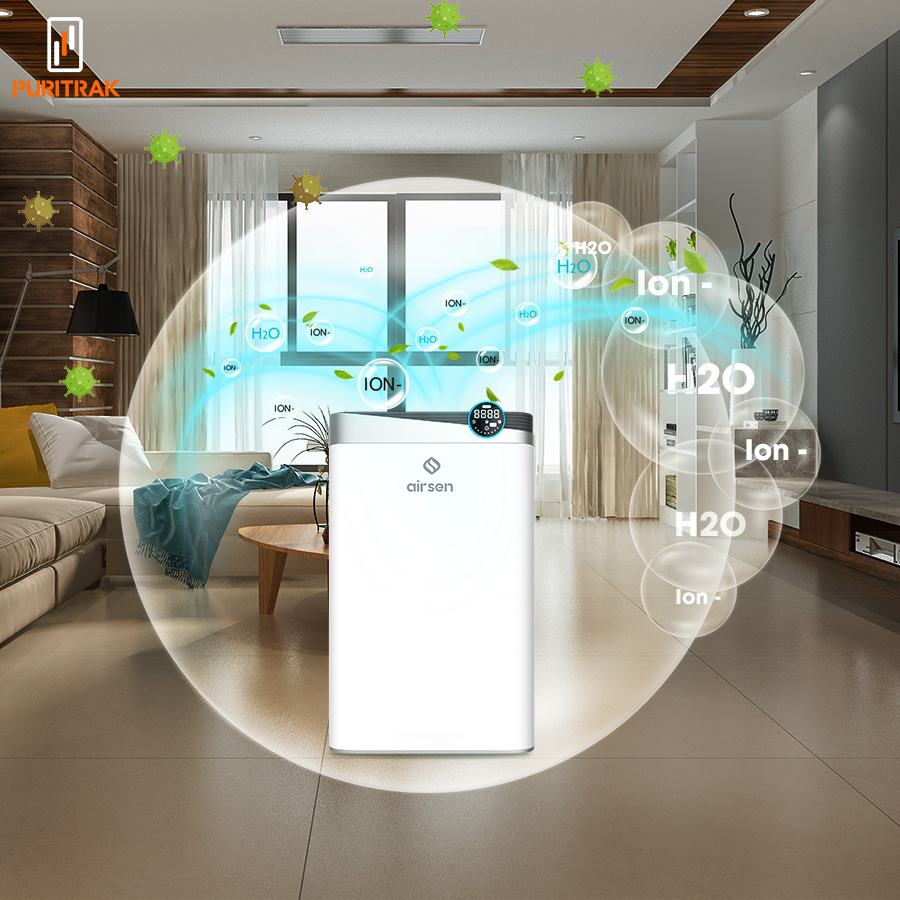
Air purifiers are an effective solution in preventing mold and bacteria. With modern technology and HEPA filter feature, Puritrak air purifier is capable of removing 99.97% of fine dust particles, bacteria and mold in the air.
2.2. Maintains Ideal Humidity
Puritrak air purifier not only cleans the air but also helps maintain humidity at a safe level, preventing mold growth. You can also use a dehumidifier to reduce moisture in the air, especially in rooms with little air circulation.
2.3. Regular Cleaning
Make sure to clean surfaces and areas prone to mold such as the bathroom and kitchen. Use effective cleaning products to clean these areas regularly.
2.4. Air Circulation

Open windows and use exhaust fans to help circulate air, reduce humidity and prevent mold growth. Improving indoor air circulation also helps keep the air fresher.
2.5 . Leak Inspection and Repair
Check locations for possible water leaks such as roofs, water pipes, and repair promptly. Regular home maintenance will help you prevent mold and bacteria more effectively.
3. Why Choose Puritrak to Prevent Moisture and Bacteria?
3.1. Outstanding Performance
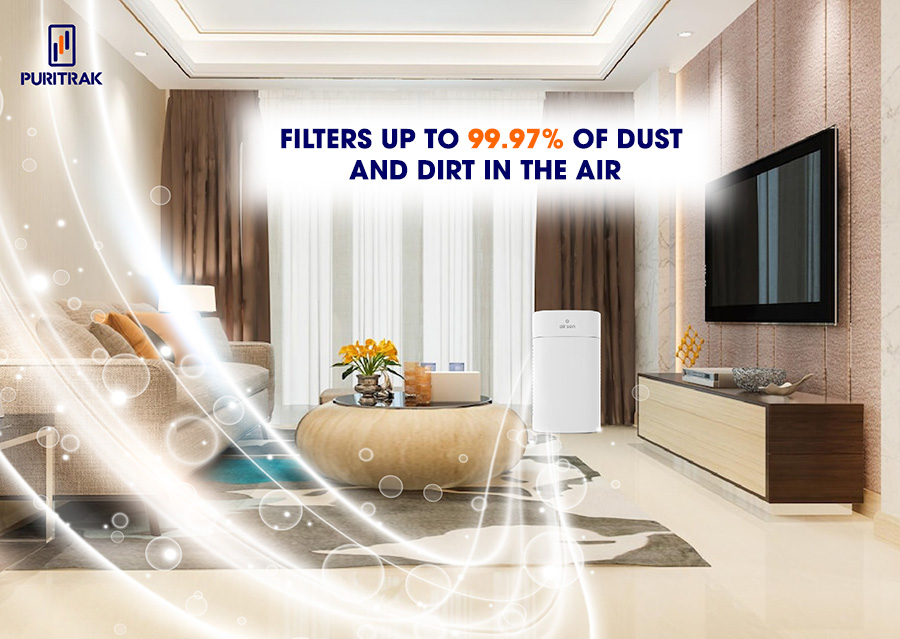
Puritrak air purifier uses modern filtration technology, committed and ensures the air is always fresh and clean for customers. With a HEPA filter and high-end air quality sensor, Puritrak effectively eliminates harmful agents in the air with microscopic sizes from 0.3 microns.
3.2. Smart Operation
Puritrak has the feature of automatically adjusting the filter mode according to actual air quality and customer programming. Helps save energy and ensures optimal filtration efficiency. You don’t need to worry about adjusting the machine, Puritrak will do it for you.
3.3. Exquisite Design
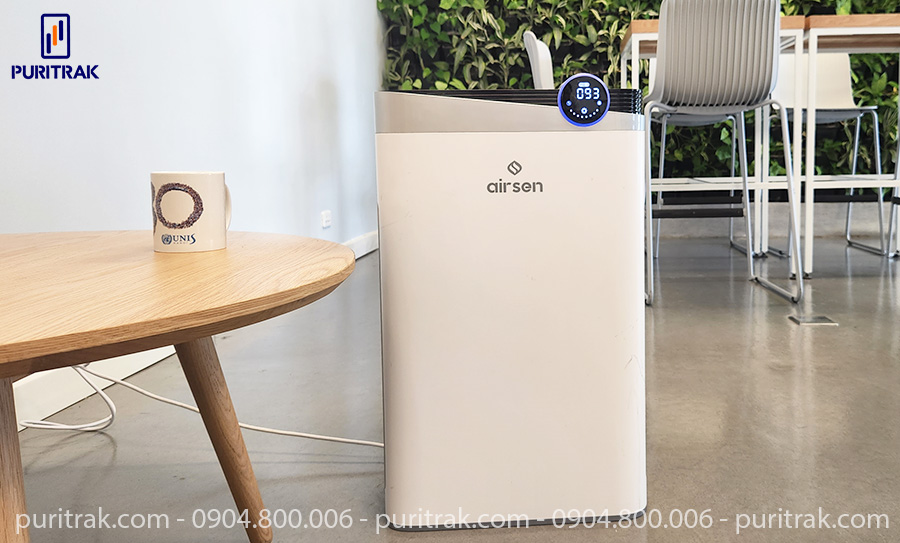
Puritrak air purifier has a sophisticated design, suitable for any living space. You can easily place the device anywhere in the house without affecting the aesthetics of the space.
Preventing mold and bacteria after Typhoon Yagi is very important to protect your family’s health. Using a Puritrak air purifier is an effective and convenient solution, helping you maintain fresh and safe air. Please contact us now for more details and special offers! Thank you for reading the article!
Puritrak products and services:
- Puritrak air purifier
- Puritrak indoor air quality measuring device
- Puritrak outdoor air quality measuring device
- AQM solution
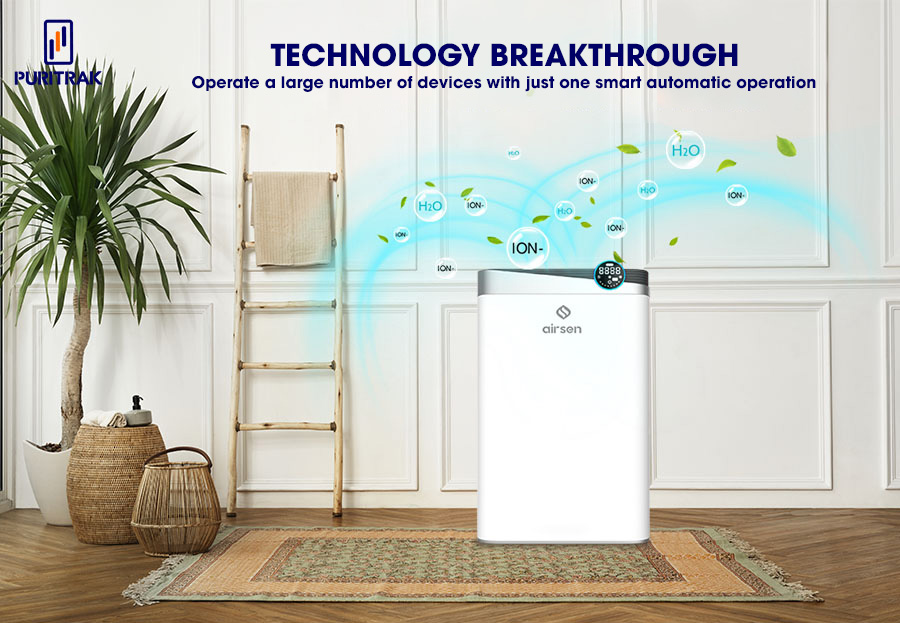
Contact info:
- Hotline: 0904.800.006
- Website: puritrak.com
- Email: [email protected]
- Fanpage: Puritrak
